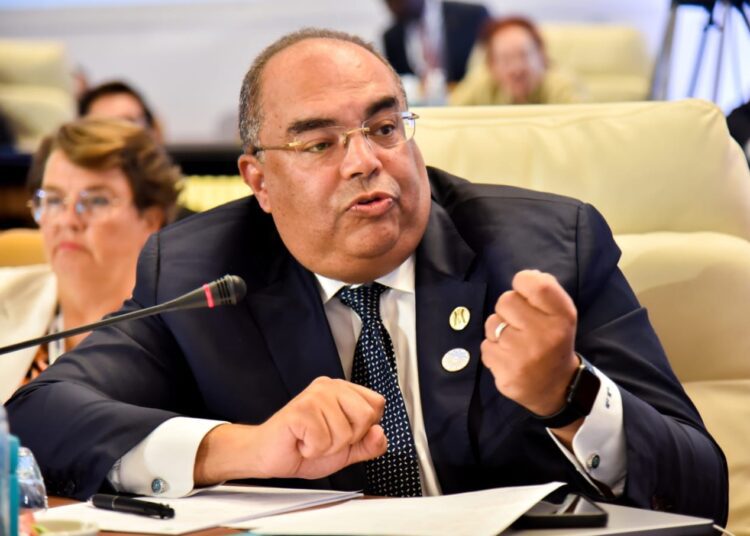Dr Mahmoud Mohieldin, UN Climate Change High Level Champion for Egypt and UN Special Envoy on Financing 2030 Sustainable Development Agenda, stressed that the shift to a resilient, low-carbon economy can and should be a net driver of job creation.
The statements were part of Dr Mohieldin’s speech at the Human Rights Council in a session titled “the future of the right to work in connection with climate change actions, responses and impacts in the context of sustainable and inclusive economies”. The session was attended by H.E. Ms. Katharina Stasch, Vice-President of the Human Rights Council,H.E. Ambassador/ Ahmed Ihab Abdelahad Gamaleldin, Ambassador and Permanent Representative of Egypt to the United Nations Office and other international organisations in Geneva, and H.E Nada Al-Nashif, Acting United Nations High Commissioner for Human Rights.
In his speech, the climate champion stressed that there will be transitional challenges, however, for workers, communities and countries as this shift occurs. Thus, the full range of environmental, social and governance dimensions of responsible investment need to be incorporated in the strategies to address the negative impacts of climate change.
Mohieldin added that it is imperative to adopt a “Holistic Approach” within a more comprehensive agenda for sustainable development. “After all, climate action is the 13th of a more comprehensive action plan of 17 SDGs, including SDG 8 on Decent Work and Economic Growth,” he added.
In a related context, Mohieldin stressed that the phasing-in of low emission technologies and phasing-down of high emission ones must meet the rights and needs of all those impacted by such transition, including their right to work.
The climate champion stressed that people’ jobs and well-being should be at the centre of the transition. Ensuring that all workforces find secure pathways in these sectoral redeployments is a key element of a successful just transition, he noted.
Dr Mohieldin also stressed the need to move from pledging to climate action at COP27 through translating agreements and pledges into concrete initiatives, including through scaling up climate projects. The latter create new jobs.
In this regard, Mohieldin referred to the initiatives that have been launched at the regional and national levels. On regional level, the COP27 Presidency, UN Regional Commissions and Climate Champions launched a series of five regional roundtables that resulted in many projects ready to be financed in the areas of mitigation and adaptation were presented in these forums.
On local level, Mohieldin pointed out that the Government of Egypt has launched the “National Initiative for Green and Smart Projects Egypt’s Governorates” as a pioneering initiative in the areas of achieving sustainable development goals, addressing the effects of climate change, and implementing digital transformation.
The initiative aims at developing a governorate-level map of green and smart projects, that present innovative climate solutions at the local levels, and mobilising the necessary investments for the implementation of these projects. Mohieldin is chairing the National Judging Committee responsible for the selection of the winning projects that shall be presented at COP27.






Discussion about this post